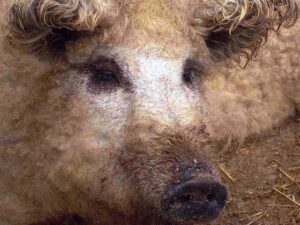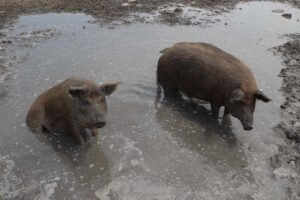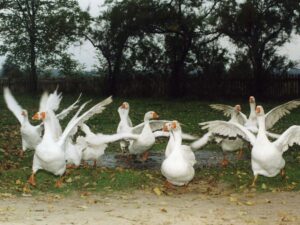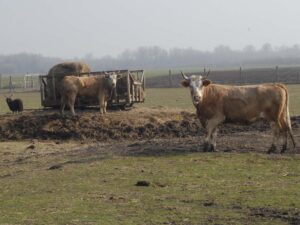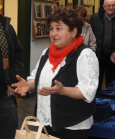Rendek Eco Farm (Rendek Okogaidasag)
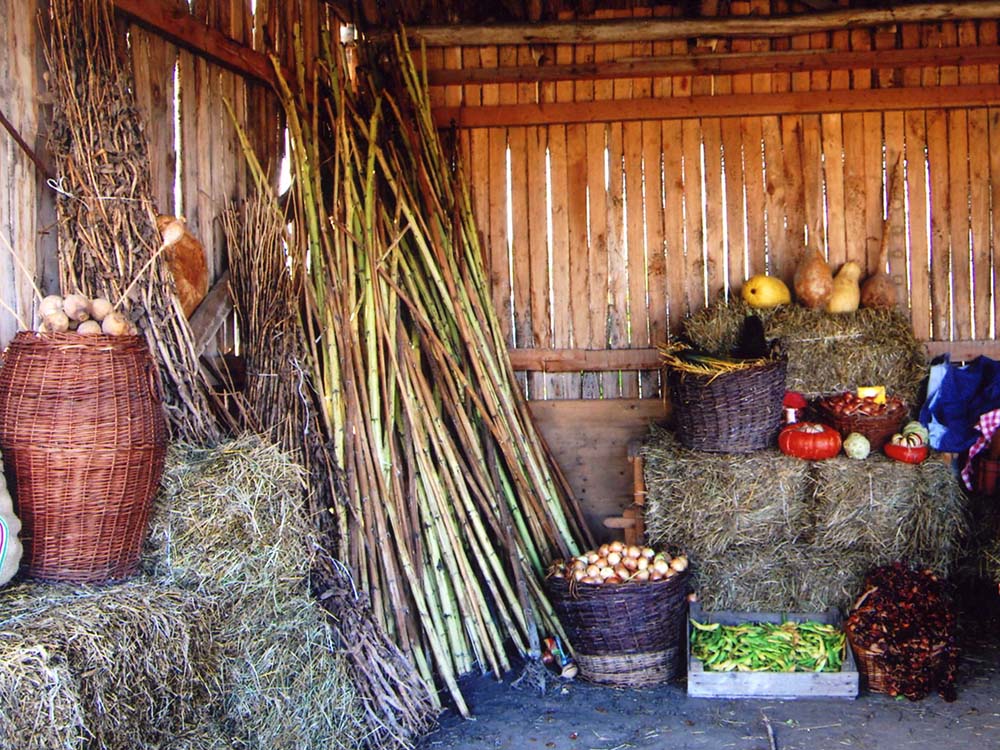
An ecological family farm that has led to a local alliance and partnerships with The Slow Food Movement internationally.
Key words: Eco farm, Heritage, Tradition, Slow Food, Alliance
Short description
Name of the initiative? Rendek Eco Farm (Rendek Okogaidasag)
Country Hungary
Region Kiskunság National Park
What kind of initiative Farming/production, Education/training, Environment, Biodiversity
The Story
I grew up on a farm, but during the socialist period, the Communists took my grandparents’ land to become part of a Soviet type of forced cooperative. My family was chased to the city and my husband and I ended up working in an office. In 1989 when the system changed in Hungary we returned to the country and bought back our ancestors’ land. My husband and I, together with our three children, began to renovate the ruined farmhouse with our own hands.
“…the Communists took my grandparents’ land to become part of a Soviet type of forced cooperative. My family was chased to the city and my husband and I ended up working in an office.”
Around us, everyone was moving to the city so no one understood why we would want to leave and come to a derelict meadow house in the countryside where it’s sandy and hard to farm. It wasn’t easy. We farmed our twenty hectares without pesticides or chemicals, and we had ancient Hungarian species; we strived to revive the old peasants’ culture. Although many people didn’t understand us, some friends told us of a cultural heritage tender available from an Agri university in Hungary. This grant was specifically for the renovation of the traditional remote ranch-style farms with a farmhouse at the centre, just like ours.
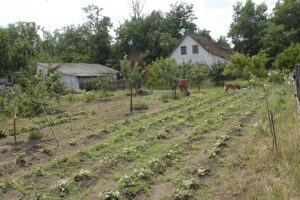
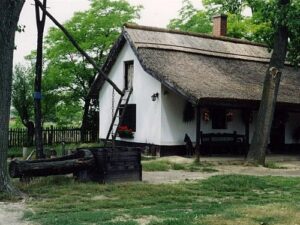
With the help of an architect friend we applied for this tender in 1997 and we won first prize! This gave us huge power to continue with the farm. We were very proud. The following year a friend who worked for the National Museum of Hungary told us of a Henry Ford Award for the conservation of traditional national culture and ecological farming. We entered this award and we won that too!
“We appeared in the headlines and on TV. It was all very new for us!”
When we received the award at the Hungary Academy of Sciences, there were a lot of international journalists interested in our story. We appeared in the headlines and on TV. It was all very new for us! But it was good because it showed the people who laughed at us for leaving the city that we had done something to be proud of.
Being famous also gave us an opportunity. I gathered people around me who act and think in the same way – artisans, people who make traditional crafts, and farmers of course. Together we founded The Kiskunsag Heritage Conservation Artisan and Touristic Alliance. That was in 2001. The key to collaboration is to esteem who you work with. Our alliance works because we all give esteem to each other. We treat everyone as a partner, even the car driver, because his or her work is important for us too.
“The key to collaboration is to esteem who you work with. Our alliance works because we all give esteem to each other.”
Researchers got to know what we were doing and thought it was a great thing. Actually, we were only doing the things we saw at home when we were children. Our friend (a Hungarian researcher who lives in Denmark) told us about The Slow Food Movement – at the time, a conference in Sicily of agricultural ministers said, ‘there is no Hungarian product in The Slow Food Movement’. Actually, we have always acted in the spirit of the Slow Food Movement – for twenty years before we had even heard of it! Our initiative met all the requirements so in 2003 the inspectors visited our farm and invited us into the movement.
We farmed mangalica kolbasz (an ancient breed of curly-haired Hungarian pig) but it was hard to reach the international market with this meat. Hungary wasn’t a member of the EU until the following year. In 2004 we represented Hungary in Turin for ‘Salone del Gusto’ – an international food fayre with over 160 countries in attendance.
“…we have always acted in the spirit of the Slow Food Movement – for twenty years before we had even heard of it!”
We naturally love Hungary’s heritage and nature and farming, but it has been valuable to be given these international opportunities, not only for ourselves. Travelling with Slow Food we brought some students and the director of a school along with us to present what we’ve been doing in Hungary: offering a taste training in local schools, and taking the pupils out to the farm to show them where the food comes from, conserving our invaluable heritage. We work with our hands and our minds at the same time.
Three years ago, we were given an opportunity to organize the Central European network of Slow Food Culture, Heritage, Identity and Food with Poland, Italy, Czech Republic and Croatia. Travelling to these countries enabled me to see a diversity of seeds and traditions, but also reinforced the value and diversity of what we have and do on our farm.
“We don’t want to take our knowledge to the grave with us!”
We don’t want to take our knowledge to the grave with us! We were very lucky. When my husband and I were growing we learned how to slaughter animals, how to do woodwork. We knew how to live in the countryside and we never felt good in the city. We taught our children for life. Our daughters speak languages and have other professions, but they know how to self-sustain themselves. One day my middle daughter will take over the farm: when I travel, she looks after things.
“My family say I’m the engine, but without fuel the engine won’t work. My fuel is my husband, my three daughters, my grandchildren, my friends. I’m just one representing many.”
My family say I’m the engine, but without fuel the engine won’t work. My fuel is my husband, my three daughters, my grandchildren, my friends. I’m just one representing many.
“It is very important not to get isolated from the soil. We are between the soil and the sky and we think rationally. We don’t desire anything that can’t be reached.”
Most of the time we live simply, although I often talk on a dawn radio show on rural topics – speaking about how to farm seasonally. Others may think this is something special, but I only tell things I know. It is very important not to get isolated from the soil. We are between the soil and the sky and we think rationally. We don’t desire anything that can’t be reached.
Additional information
—
Repository compiled by: Olga Rendek
E-mail contact: olga.rendek@gmail.com

